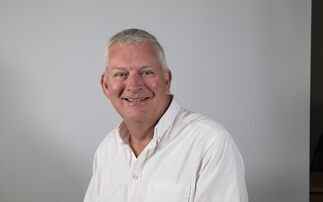Insurer Zurich welcomed the regulator's pledge to re-open the long-stop debate but suggested it should be looking at more options than just a 15-year liability period.
Zurich principal of government and industry affairs Matt Connell (pictured) said the Financial Conduct Authority's (FCA) pledge in its latest business plan that it would consult on a 'long-stop' for advice liability for all advisers was "encouraging" as it was a "tangible step forward".
The FCA said in March it would consult on the re-introduction of a 15-year long-stop on complaints against financial services firms.
Its decision came six years after its predecessor ruled it out, saying at the time the potential detriment to consumers of a long stop would outweigh the benefits of having greater certainty around liabilities.
Some advisers said they are concerned the FCA would again look at the issue only from a consumer perspective and rule against an end of liability for firms.
But Connell suggested the regulator stands a good chance of finding a long-stop that works in the interest of consumers, as long as it is willing to consider the different solutions that are being drawn up by the industry.
For instance, Connell said, the FCA could allow pension advisers to ask their clients to "sign off" the retirement advice after the point of retirement.
There is a prospect an adviser in retirement could receive a large bill from one claim on advice on one pension 30 years back, as a "marginal decision" compounded by a low interest rate environment could mean the cost in compensation could rocket, he suggested.
"The IFA could go back to the customer and say at retirement 'are you happy to sign off on all the advice up to now'. That would enable them to look at their pension book and know they are secure in the knowledge it will not come back to them."
Connell said it is important to have regulatory certainty underpinning any long-stop arrangement, not least to ensure partnerships and single traders receive the same treatment.
As it stands in limited liability companies liability rests with the firm, whereas sole traders are liable in person even after they retire.
Industry players started to explore potential alternative solutions to long-stop after they lost faith the regulator would act any time soon.
For instance, former Tenet director Geoffrey Clarkson and broker Marsh UK have built a project around two alternative long stop ideas: a mutual model and a commercial model - the idea being that commercial insurers or re-insurers would insure legacy business, taking the burden off advisers' backs.
Adviser Phil Castle also came up with a long-stop idea in 2009, which he based on liability limitations anchored in common law.
He asked clients to sign a terms of business (ToB) agreement stating the company would rely on a 15-year limit during which the client must review the advice they were given.
But the regulator has not accepted Castle's actions and is still threatening to take action against the adviser.












